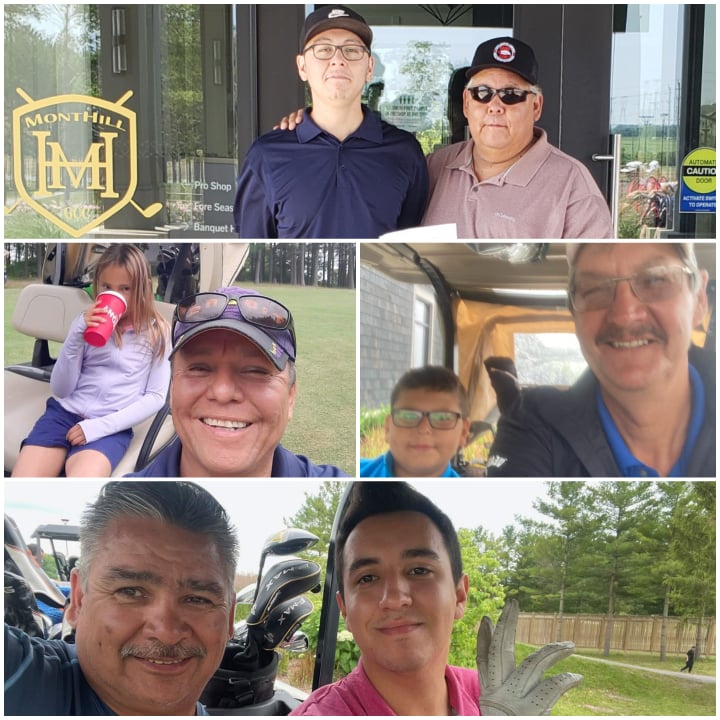
I wanted to take a few moments to respond to last week’s TRT article written by Jim Windle on the loss and change of the Mohawk language in Six Nay. I would hate for the negative opinions expressed in the article to be the last impression that was left in the minds of the people. Instead, I would try to address some of those concerns while raising our minds back up so that we may find our peace and continue to work together. We might find that we have common goals.
First let me say how thankful I am to even have the opportunity to address this Kanyen’keha question in a public forum. It means that our Six Nay community members are still lucky enough to have a language to fight about. There are many Onkwehon:we people across Turtle Island that would love to have this kind of complaint in their community. But, they can’t. Their languages have been lost to the annals of history and their children cannot reconnect. EVER. That is the horrific legacy of colonization and assimilation.
Fortunately, the people of Six Nations can still gritch and bumble about Kanyen’keha (…And good lord, can we gritch!!! If it were a contest, we are Olympians. We are gold, silver AND bronze medal winners.) Lamentably this is why we find ourselves having this conversation today. While I may share their love of our language, I do not share the fears, concerns and opinions. At almost every point in the article I share the opposing viewpoint.
Let’s start with the fake, unintelligible Mohawk claim. This is simple gossip. To this I would invite the sisters to come in and see for themselves. Don’t settle for what you heard or what you think you know. Go to the classes and listen. What you will hear is the teachers you are complaining about actually share your concerns. They want to maintain our Grand River dialects (and there are several of these not just yours) and they are constantly vigilant about teaching our dialect and terminology. They prioritize Grand River and make sure to practice that with the students.
However, they do tell people other ways they have heard something said. They share other ways of saying the same thing in order to broaden their horizons and give students options. If we look at your example of the different words being used for policeman, I vote for sharing different dialects and more words every single time. We don’t live in a Grand River vacuum. How many different ways do you know how to say policeman in English? A quick thesaurus check on the computer comes up with 30 ways including detective, patrolman, pig, bobby, bluecoat, constable, cop, flatfoot, narc, officer, gendarme, gumshoe and fuzz. I can think of a few more, some perhaps inappropriate. Give that list to any 5 year old near you and see how many they recognize. See if they know which terms are slang, which terms are proper and which terms are from different parts of the world. I would bet they also know other terms with no confusion at all. In my opinion, we are better served to expand our vocabulary and our experience rather than narrow and constrict ourselves.
So go to those classrooms that bother you. The students in those classes would be over the moon to have you and your knowledge sitting in the class with them and helping them learn. The teachers that you have spent so much time criticizing would probably appreciate your involvement. They are all adults and have their big boy pants on. What could it hurt to reach out and try work together instead of against each-other?
To address your claim that you have tried speaking with some of today’s students and they are speaking new Mohawk is outlandish. My guess is that they are trying to communicate and are simply making mistakes and you’re upset because they aren’t speaking perfectly. I would go further and say, this is your problem not theirs. Why not choose to be happy that they are even trying to learn? IMHO this is where much of the problem lies. It is flippin’ hard to learn our languages and even harder to teach them. Without a doubt one of THE MOST DIFFICULT problems to address with students is convincing them to be OK with making mistakes. We have to spend a great deal of teaching time, encouraging students to simply speak. Just say something, anything just try. We have to reassure, and be patient and open hearted. We have to reiterate a million times that they are in a safe space and that we expect mistakes. We have to spend so much time cheering them on because they have spent their lives being shut down and closed off by their education experience. They are made to feel like dummies for simply making a mistake. Let’s decide now to stop doing this to each other.
TRT, I think this is the main reason I felt compelled to write a response to this article. In one great big public fell swoop you criticized an entire generation of people who are finally showing an interest in learning our languages. Do you have any clue of how difficult it is to get our people to feel safe enough to try and speak their language? Any clue at all??? Seriously TRT, I just want to grab you by the ear and send you back the bush to pick your whip.
Thankfully, over the past few years the number of people who have shown interest in studying Mohawk has increased ten-fold. They are taking night classes, single classes in school, online courses, working with tutors, hanging with speakers, reading whatever language materials they can get their hands on. In short they are doing what it takes. They are of every age, gender, religion, location and walk of life. They share our interest and they are lucky to have all these options available to them. To each and every one of you, I simply say nya:wen. You bring me such happiness because I know you understand how I feel. We see eye to eye.
Let us all turn our minds towards the future and find ways to stop complaining and start the doing.
Bonnie







